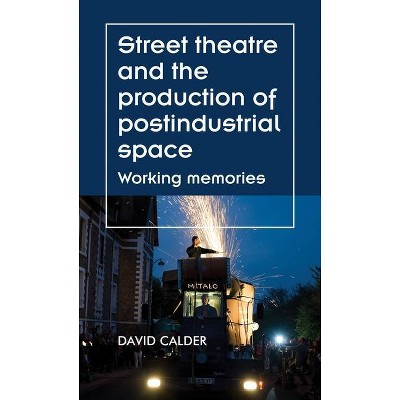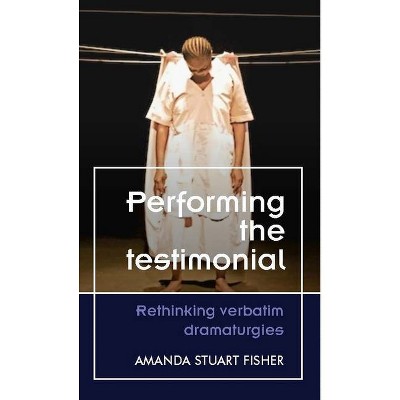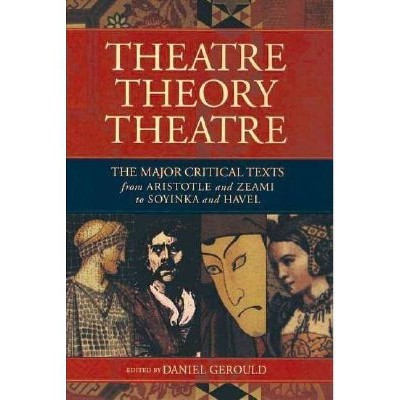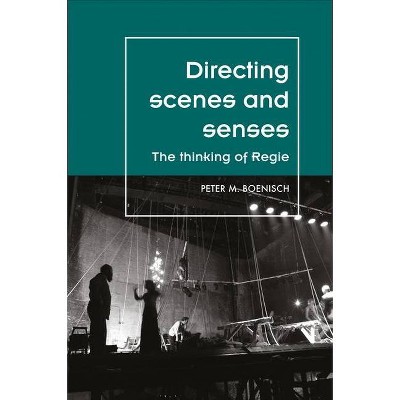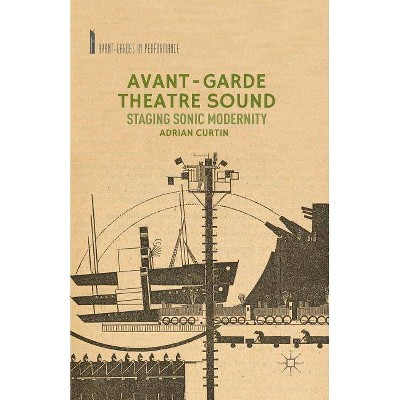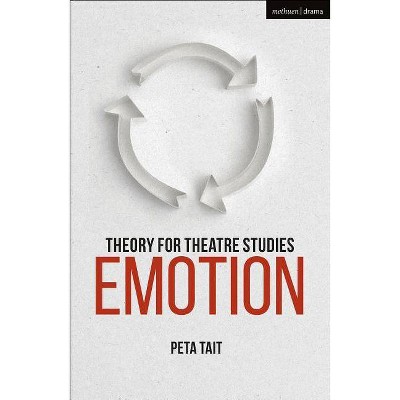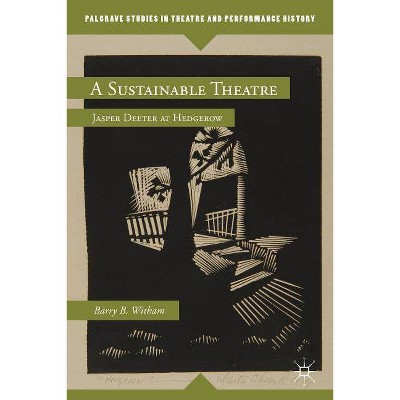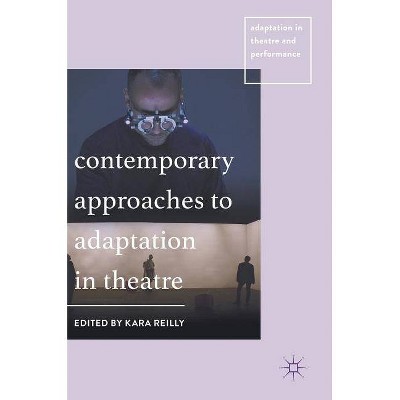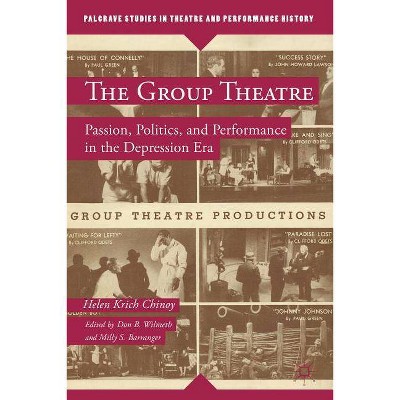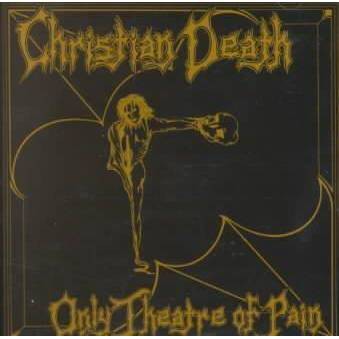Death in Modern Theatre - (Theatre: Theory - Practice - Performance) by Adrian Curtin (Hardcover)
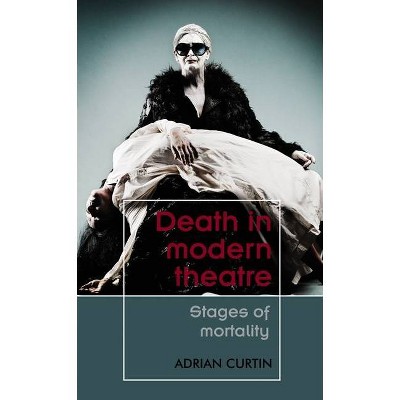
Similar Products
Products of same category from the store
AllProduct info
<p/><br></br><p><b> About the Book </b></p></br></br>This book analyses representations of death and dying in modern Western theatre from the late nineteenth century onward, examining how and why historically informed conceptions of mortality are dramatized and staged.<p/><br></br><p><b> Book Synopsis </b></p></br></br><p> </p><p>This book offers a unique account of modern Western theatre, focusing on the ways in which dramatists and theatre-makers have explored historically informed ideas about death and dying in their work. <br /> <br /> The book re-examines what has hitherto been regarded as a largely unrelated and idiosyncratic set of activities. It provides an ambitious overview of how death and dying are treated in modern theatre, covering a time-span of over a hundred years and engaging multiple cultural contexts. It investigates the opportunities theatre affords to reflect on the end of life in a compelling and socially meaningful fashion.<br /> <br /> In a series of interrelated, mostly chronological, micronarratives beginning in the late nineteenth century, this book considers how and why death and dying are represented at certain historical moments using dramaturgy and aesthetics that challenge audiences' conceptions, sensibilities and sense-making faculties. Chapters focus on the ambiguous evocation of death in symbolist theatre; fantastical representations of death in plays about the First World War; satires of death denial in absurdist drama; 'theatres of catastrophe' after Auschwitz and Hiroshima; and drama about dying in the early twenty-first century. The book includes a mix of well-known and lesser-known plays and performance pieces from an international range of dramatists and theatre-makers. It offers original interpretations through close reading and performance analysis, informed by scholarship from diverse fields, including history, sociology and philosophy.<br /> <br /> Written in a lively, accessible style, this book will be of interest to scholars of modern Western theatre and those interested in death studies.</p><p/><br></br><p><b> From the Back Cover </b></p></br></br>This book offers a unique account of modern Western theatre, focusing on the ways in which dramatists and theatre-makers have explored historically informed ideas about death and dying in their work. The book re-examines what has hitherto been regarded as a largely unrelated and idiosyncratic set of activities. It provides an ambitious overview of how death and dying are treated in modern theatre, covering a time-span of over a hundred years and engaging multiple cultural contexts. It investigates the opportunities theatre affords to reflect on the end of life in a compelling and socially meaningful fashion. In a series of interrelated, mostly chronological, micronarratives beginning in the late nineteenth century, this book considers how and why death and dying are represented at certain historical moments using dramaturgy and aesthetics that challenge audiences' conceptions, sensibilities and sense-making faculties. Chapters focus on the ambiguous evocation of death in symbolist theatre; fantastical representations of death in plays about the First World War; satires of death denial in absurdist drama; 'theatres of catastrophe' after Auschwitz and Hiroshima; and drama about dying in the early twenty-first century. The book includes a mix of well-known and lesser-known plays and performance pieces from an international range of dramatists and theatre-makers. It offers original interpretations through close reading and performance analysis, informed by scholarship from diverse fields, including history, sociology and philosophy. Written in a lively, accessible style, this book will be of interest to scholars of modern Western theatre and those interested in death studies.<p/><br></br><p><b> Review Quotes </b></p></br></br><br>'I would nominate this as the best monograph on drama and theatre studies I have read in at least five years. In its careful navigations of how notes of hope and fear may alternate in both theatre and life, Curtin's study encourages fundamental personal and social reflections in terms that are graceful and vivifying. Its alluring journey sounds resonances and provokes reconsiderations of how we might best play out our brief scenes with others: with serious attentive care of properly long-term priorities, with artful wit, and with style.' Modern drama 'Death in modern theatre is a compelling and insightful study that will be useful to students and scholars of theatre studies and death studies as well as a general readership. Written in an accessible style, the study persuasively and pragmatically sets out a case for theatre's capacity to 'help us to better understand what it means to be mortal, what it means to be human' (241).' Mortality 'Death in Modern Theatre is a fascinating cultural history of death from the perspective of the performing arts and an engagingly written and duly meditative (though, remarkably, never morose) study. It will inspire any scholar or student concerned with the deathliness of modern theatre. ' New Theatre Quarterly 'The book ... is a compelling study of dramas, some familiar and others less so, reflecting attitudes on death during the period they were written. Moreover, the text surprises with humor and an occasional light touch, which brings the reader willingly into the subject matter. ... [As] a professor of theatre, I would assign this text to introduce playwrights rarely included in conventional dramatic survey collections. Curtin's writing brings these historic productions back to life and explores how nimble the theatrical discipline is, aptly illustrated by how its attitudes on death and dying have changed with changing times.' Omega<br><p/><br></br><p><b> About the Author </b></p></br></br>Adrian Curtin is Senior Lecturer in Drama at the University of Exeter
Price History
Price Archive shows prices from various stores, lets you see history and find the cheapest. There is no actual sale on the website. For all support, inquiry and suggestion messages communication@pricearchive.us
